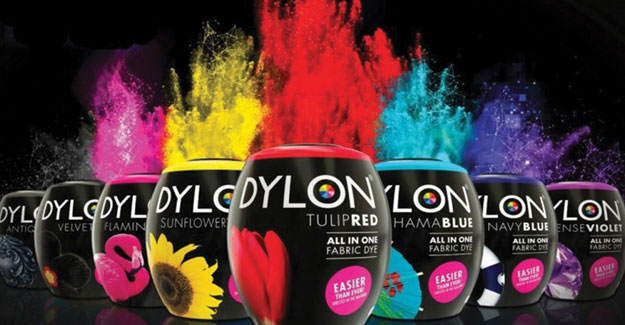
Re-Dye, Don't Re-Buy, Says Dylon
Initiative aims to let consumers know how easy it is to revive and recycle garments. Dylon Dyes, the UK's leading fabric dyeing brand, is launching the 'Re-Dye Don't Re-Buy' initiative this Autumn/Winter in a bid to help the textile industry lower its carbon emissions. The campaign is in response to a new academic report commissioned by the company that looks into the environmental impact of consumers buying new clothes compared to re-dyeing existing garments. British consumers are notorious for their fast fashion consumption and buy more clothes per person compared to countries in Europe. In fact, 66% of respondents to a survey for the report admitted to buying the same or more garments than they were two years ago. However, one in three (34%) are now consciously buying less clothes and have cited environmental impact as one of their key reasons. Dylon's Re-Dye Don't Re-Buy initiative aims to inspire consumers to make old clothes look brand new and colourful again, with a fresh fashion-led creative approach. Video content will be launched on social platforms including Facebook, Instagram and Youtube, along with simple but effective how-to guide. These will be complemented by user generated content from revered fashion influencers who dominate these platforms; also the release of the brand's first fashion capsule collection, to name just a few. "We are thrilled to be supporting efforts in the fashion industry to build a more sustainable future," said Rebecca Bland, senior brand manager at Dylon Dyes. "The goal of this initiative is to let consumers know how easy it is to revive and recycle garments whilst significantly helping the environment and saving money." The report shows that every pair of jeans that are re-dyed instead of re-bought saves up to 20kg CO2 per pair. If just 10% of the 26 million adults in the UK aged between 20-50 years old decided to re-dye an existing pair of jeans, rather than buy a new pair, the potential saving in carbon dioxide output in only one year would equal 49 million kgs - the same as a staggering 15,500 round-trip flights from London to Hong Kong. "Currently 300 tons of UK household textile waste goes to landfill or for incineration each year, but much of it could be recycled," Bland continued. "We're hoping that our initiative will urge people to first dig into their wardrobes to see how they can and transform their existing clothes with Dylon dye machine pods before making new purchases."
Textile Excellence
If you wish to Subscribe to Textile Excellence Print Edition, kindly fill in the below form and we shall get back to you with details.












